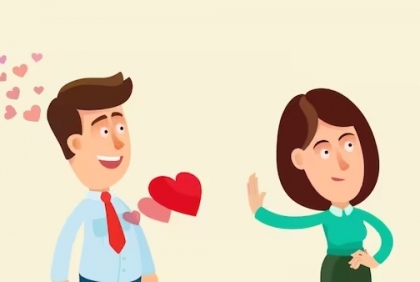10 Signs You're in a One-Sided Relationship
Relationships should ideally be a balanced exchange of love, support, and understanding between two individuals. However, sometimes one person may find themselves giving much more than they receive in return, leading to a one-sided relationship. If you're unsure whether your relationship is balanced or not, here are ten signs to help you identify if you're in a one-sided relationship.
1. You're the One Making All the Effort
Do you often find yourself initiating plans, conversations, or efforts to resolve conflicts? In a one-sided relationship, you might be the primary driver of keeping the relationship afloat. If your partner rarely takes the initiative or seems disinterested in making things work, it could indicate an imbalance.
2. Your Needs Aren't Being Met
Healthy relationships involve meeting each other's emotional, physical, and social needs. If you constantly feel ignored, invalidated, or that your needs aren't a priority, it could signal a one-sided dynamic.
3. They're Unwilling to Compromise
Relationships thrive on compromise and mutual understanding. However, if your partner consistently refuses to meet you halfway or adapt to accommodate your needs, it may indicate a lack of consideration for your feelings and desires.
4. You Feel Drained or Emotionally Exhausted
Healthy relationships should uplift and energize you. If you find yourself feeling emotionally drained, stressed, or constantly anxious because of the relationship dynamics, it's a significant red flag.
5. Communication Feels One-Sided
Communication is the cornerstone of any healthy relationship. If your partner consistently dominates conversations, dismisses your opinions, or shows little interest in your thoughts or feelings, it could indicate a lack of mutual respect.
6. They're Unsupportive During Tough Times
A supportive partner is there for you during challenging times. However, if your partner is absent, indifferent, or dismissive when you need their support the most, it might suggest a one-sided relationship where their needs supersede yours.
7. They Avoid Commitment or Future Planning
Healthy relationships involve discussions about the future, plans, and commitments. If your partner consistently avoids discussing long-term plans or seems hesitant about committing to a future together, it could signify a lack of investment in the relationship.
8. You Feel Guilty for Expressing Yourself
Are you hesitant to voice your opinions or feelings because you fear upsetting your partner? Feeling guilty for expressing yourself, or constantly walking on eggshells, suggests an unhealthy power dynamic within the relationship.
9. They're Overly Dependent on You
While support is essential in a relationship, if your partner relies entirely on you for their emotional or practical needs without reciprocating, it can create an imbalanced, one-sided situation. This may be termed a codependent relationship.
10. Your Gut Tells You Something Is Amiss
Sometimes, your instincts can be a powerful indicator. If you consistently feel uneasy, undervalued, or that something isn't right despite efforts to make things work, it might be a sign that the relationship is one-sided.
Conclusion
If you resonate with several of these signs, it's essential to address your concerns with your partner. Healthy relationships require open and honest communication. Express your feelings and observations calmly and assertively. Discuss your needs and evaluate whether your partner is willing to work on the relationship together. However, if your partner remains unwilling to acknowledge or address the imbalance, it might be time to reassess whether the relationship is meeting your emotional and relational needs.
Remember, recognizing a one-sided relationship is the first step towards making informed decisions about your well-being and happiness. Prioritize your emotional health and seek support from friends, family, or a professional if needed as you navigate these challenging dynamics. Ultimately, everyone deserves a relationship built on mutual respect, understanding, and genuine care for each other's well-being.



















